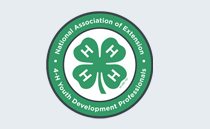Abstract
This paper explores the external developmental assets and how they manifest in specific youth programs from Colombia, Guatemala, and Honduras. An evaluation process was created through a qualitative phenomenological with the youth programs' leadership. To triangulate the data, a survey was developed and piloted with a small sample from three youth programs, one from Honduras, one from Guatemala and one from Colombia, exploring how the staff evaluate items related with the external developmental assets. This survey was created in a way that the results display in the form of a Spiderweb and in a circular way that evokes and relates with the Circle of Courage. The Spiderweb served to illustrate and discuss with the program staff. Eight interviews were developed with the youth program’s staff from the three programs and analyzed through a phenomenological approach. External assets showed their theoretical validity in these three specific contexts, according to the evaluation survey and the semi structured interviews. Symbols, meanings and historical elements were identified as significant within these programs to understanding the youth’s development, context and communities. The Circle of Courage and the External Developmental Assets, as theoretical constructs, offer possibilities of improving evaluation processes in community work with youth, as long as the frameworks continue to be integrated into a synergistic intentional approach with a cross-cultural perspective.
Recommended Citation
de Mezerville-López, Claire M.
(2023)
"Developmental Assets and Community-Based Youth Programs in Colombia, Guatemala, and Honduras,"
Journal of Youth Development: Vol. 18:
Iss.
3, Article 2.
Available at:
https://open.clemson.edu/jyd/vol18/iss3/2
Included in
Civic and Community Engagement Commons, Community-Based Learning Commons, Developmental Psychology Commons, Educational Assessment, Evaluation, and Research Commons, Educational Psychology Commons, Leadership Studies Commons



